From household names to everyday stories, these memoirs encompass the joys, sorrows, and eccentricities of lives well-lived. Hand-chosen by DPL staff, this Core Collection aims to highlight seminal and lesser-known titles that are testaments to their genre.
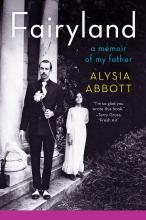
A beautiful, vibrant memoir about growing up motherless in 1970s and ’80s San Francisco with an openly gay father. Reconstructing their life together from a remarkable cache of her father’s journals, letters, and writings, Alysia Abbott gives us an unforgettable portrait of a tumultuous, historic time in San Francisco as well as an exquisitely moving account of a father’s legacy and a daughter’s love.
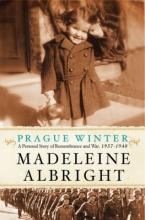
From former Secretary of State Madeleine Albright comes a moving and thoughtful memoir of her formative years in Czechoslovakia during the tumult of Nazi occupation, World War II, fascism, and the onset of the Cold War. Publisher's description.
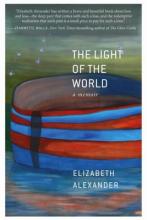
In The Light of the World, Elizabeth Alexander finds herself at an existential crossroads after the sudden death of her husband. Channeling her poetic sensibilities into a rich, lucid price, Alexander tells a love story that is, itself, a story of loss. As she reflects on the beauty of her married life, the trauma resulting from her husband's death, and the solace found in caring for her two teenage sons, Alexander universalizes a very personal quest for meaning and acceptance in the wake of loss.
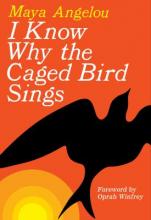
Here is a book as joyous and painful, as mysterious and memorable, as childhood itself. I Know Why the Caged Bird Sings captures the longing of lonely children, the brute insult of bigotry, and the wonder of words that can make the world right. Maya Angelou’s debut memoir is a modern American classic beloved worldwide.
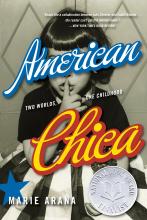
In her father’s Peruvian family, Marie Arana was taught to be a proper lady, yet in her mother’s American family she learned to shoot a gun, break a horse, and snap a chicken’s neck for dinner. Arana shuttled easily between these deeply separate cultures for years. But only when she immigrated with her family to the United States did she come to understand that she was a hybrid American whose cultural identity was split in half. Coming to terms with this split is at the heart of this graceful, beautifully realized portrait of a child who “was a north-south collision, a New World fusion. An American Chica.”
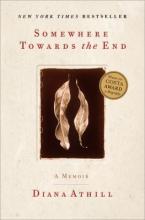
Athill reflects candidly, and sometimes with great humor, on the condition of being old—the losses and occasionally the gains that age brings, the wisdom and fortitude required to face death.

It is said that the boy is father to the man, but in the case of Jimmy Santiago Baca, a childhood marked by abandonment, violence, and drugs remarkably produced one of our generation's most acclaimed poets. Now, the New Mexico native makes his first foray into the realm of narrative nonfiction in this graphic and affecting memoir that recalls a life of constant tragedy.
Ultimately, Baca is able to look back on his life and family with forgiveness. His increasing awareness that his life isn't the one he would have chosen, but is the one that made him who he is, is a moving lesson for us all.
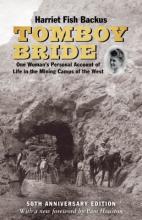
It is a woman named Hattie's personal account of life in the mining camps of the American West, beginning with her marriage to George and concluding in 1964 when George died, literally in her arms. Tomboy Bride is divided into four parts: The San Juans; Britannia Beach; The Heart of Idaho; and Leadville, City in the Clouds. Tomboy Bride is an engaging from the very start, reading more like a novel than a biography.
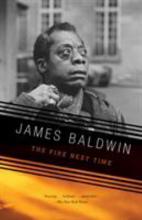
At once a powerful evocation of James Baldwin’s early life in Harlem and a disturbing examination of the consequences of racial injustice, the book is an intensely personal and provocative document. It consists of two “letters,” written on the occasion of the centennial of the Emancipation Proclamation, that exhort Americans, both black and white, to attack the terrible legacy of racism.
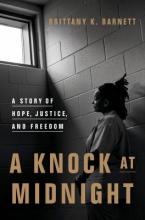
An inspiring true story about unwavering belief in humanity and an urgent call to free those buried alive by America's unjust legal system--from a gifted young lawyer whose journey marks the emergence of a powerful new voice in the movement to transform the system.
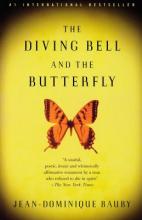
In December 1995, Jean-Dominique Bauby, editor-in-chief of French ‘Elle’ and the father of two young children, suffered a massive stroke and found himself paralyzed and speechless, but entirely conscious, trapped by what doctors call ‘locked-in syndrome’. Using his only functioning muscle – his left eyelid – he began dictating this remarkable story, painstakingly spelling it out letter by letter. His book offers a haunting, harrowing look inside the cruel prison of locked-in syndrome, but it is also a triumph of the human spirit
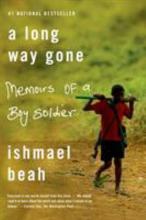
This is how wars are fought now: by children, hopped-up on drugs and wielding AK-47s. Children have become soldiers of choice. Ishmael Beah, now 25 years old, tells how at the age of twelve, he fled attacking rebels and wandered a land rendered unrecognizable by violence. By thirteen, he'd been picked up by the government army, and Beah, at heart a gentle boy, found that he was capable of truly terrible acts.
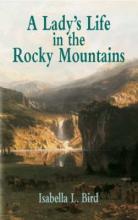
A Lady's Life in the Rocky Mountains is one of the many accounts of Isabella L. Bird's amazing travels and adventures. At the age of twenty-two, in 1854, Isabella left a comfortable life in England for a life of adventurous travel. This book is the account of six months of those travels in 1873, through the rugged terrain of the Colorado Rockies. Based upon her letters to her sister, this account relates the many hardships of the great western frontier in the pioneer days, as well as the awesome beauty of nature she found in the western territories.
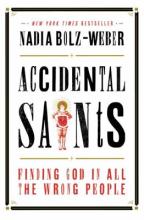
Bolz-Weber invites readers into a surprising encounter with what she calls 'a religious but not-so-spiritual life.' Tattooed, angry, and profane, this former standup comic turned pastor stubbornly, sometimes hilariously, resists the God she feels called to serve. But God keeps showing up in the least likely of people--a church-loving agnostic, a drag queen, a felonious Bishop and a gun-toting member of the NRA. As she lives and worships alongside these 'accidental saints,' Nadia is swept into firsthand encounters with grace--a gift that feels to her less like being wrapped in a warm blanket and more like being hit with a blunt instrument.
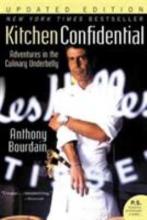
A deliciously funny, delectably shocking banquet of wild-but-true tales of life in the culinary trade from Chef Anthony Bourdain, laying out his more than a quarter-century of drugs, sex, and haute cuisine—now with all-new, never-before-published material.
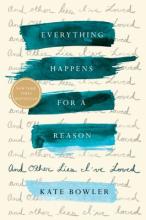
Thirty-five-year-old Kate Bowler was a professor at the school of divinity at Duke, and had finally had a baby with her childhood sweetheart after years of trying, when she began to feel jabbing pains in her stomach. She lost thirty pounds, chugged antacid, and visited doctors for three months before she was finally diagnosed with Stage IV colon cancer. On the page, Kate Bowler is warm, witty, and ruthless, and, like Paul Kalanithi, one of the talented, courageous few who can articulate the grief she feels as she contemplates her own mortality.
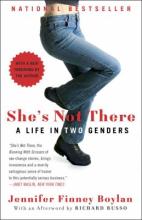
By turns hilarious and deeply moving, Jennifer Finney Boylan explores the territory that lies between men and women, examines changing friendships, and rejoices in the redeeming power of family. Told in Boylan's fresh voice, She's Not There is about a person bearing and finally revealing a complex secret. As James evolves into Jennifer in scenes that are by turns tender, startling, and witty, a marvelously human perspective emerges on issues of love, sex, and the fascinating relationship between our physical and intuitive selves.
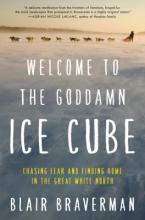
By the time Blair Braverman was eighteen, she had left her home in California, moved to arctic Norway to learn to drive sled dogs, and found work as a tour guide on a glacier in Alaska. Determined to carve out a life as a “tough girl”—a young woman who confronts danger without apology—she slowly developed the strength and resilience the landscape demanded of her. Weaving fast-paced adventure writing and ethnographic journalism with elegantly wrought reflections on identity, Welcome to the Goddamn Ice Cube captures the triumphs and the perils of Braverman’s journey to self-discovery and independence in a landscape that is as beautiful as it is unforgiving.
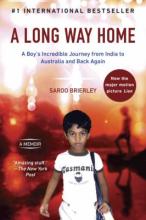
An account of the author's inspirational effort to find his India birthplace describes how he was accidentally separated from his family in the mid-1980s, his survival on the streets of Calcutta, his adoption by an Australian family, and his headline-making Google Earth search.
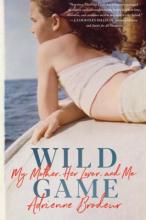
On a hot July night on Cape Cod, at the age of 14, Brodeur became a confidante to her mother's affair with her husband's closest friend. Malabar came to rely on her daughter to help, but when the affair had calamitous consequences for everyone involved, Brodeur was driven into a precarious marriage of her own, and then into a deep depression. In her memoir she examines how the people close to us can break our hearts simply because they have access to them, and the lies we tell in order to justify the choices we make.
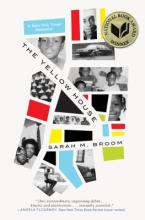
A book of great ambition, Sarah M. Broom's The Yellow House tells a hundred years of her family and their relationship to home in a neglected area of one of America's most mythologized cities. This is the story of a mother's struggle against a house's entropy, and that of a prodigal daughter who left home only to reckon with the pull that home exerts, even after the Yellow House was wiped off the map after Hurricane Katrina.
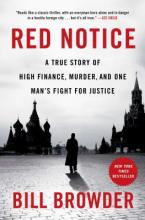
A real-life political thriller about an American financier in the Wild East of Russia, the murder of his principled young tax attorney, and his dangerous mission to expose the Kremlin's corruption.
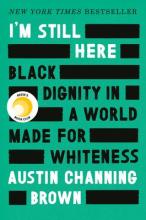
The author's first encounter with a racialized America came at age seven, when her parents told her they named her Austin to deceive future employers into thinking she was a white man. She grew up in majority-white schools, organizations, and churches, and has spent her life navigating America's racial divide as a writer, a speaker, and an expert helping organizations practice genuine inclusion. While so many institutions claim to value diversity in their mission statements, many fall short of matching actions to words. Brown highlights how white middle-class evangelicalism has participated in the rise of racial hostility, and encourages the reader to confront apathy and recognize God's ongoing work in the world.
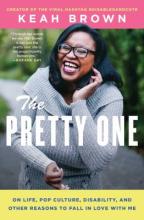
In The Pretty One, Brown gives a contemporary and relatable voice to the disabled—so often portrayed as mute, weak, or isolated. With clear, fresh, and light-hearted prose, these essays explore everything from her relationship with her able-bodied identical twin (called “the pretty one” by friends) to navigating romance; her deep affinity for all things pop culture—and her disappointment with the media’s distorted view of disability; and her declaration of self-love with the viral hashtag #DisabledAndCute.
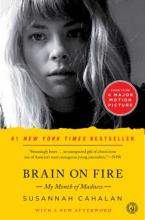
When twenty-four-year-old Susannah Cahalan woke up alone in a hospital room, strapped to her bed and unable to move or speak, she had no memory of how she’d gotten there. Days earlier, she had been on the threshold of a new, adult life: at the beginning of her first serious relationship and a promising career at a major New York newspaper. Now she was labeled violent, psychotic, a flight risk. What happened? In a swift and breathtaking narrative, Cahalan tells the astonishing true story of her descent into madness, her family’s inspiring faith in her, and the lifesaving diagnosis that nearly didn’t happen

For Francisco Cantú the border is in the blood: his mother, a park ranger and daughter of a Mexican immigrant, raised him in the scrublands of the Southwest. Haunted by the landscape of his youth, Cantú joins the Border Patrol. He and his partners are posted to remote regions crisscrossed by drug routes and smuggling corridors, where they learn to track other humans under blistering sun and through frigid nights. They haul in the dead and deliver to detention those they find alive. Cantú tries not to think where the stories go from there. Plagued by nightmares, he abandons the Patrol for civilian life. But when an immigrant friend travels to Mexico to visit his dying mother and does not return, Cantú discovers that the border has migrated with him, and now he must know the whole story.
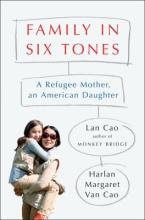
A mother-daughter memoir exploring loss, love, and healing, told in two alternating voices, from the critically acclaimed novelist and her teenage daughter.
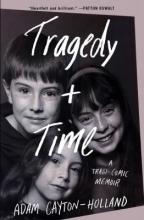
Unsentimental, unexpectedly funny, and incredibly honest, Tragedy Plus Time is a love letter to every family that has ever felt messy, complicated, or (even momentarily) magnificent. Meet the Magnificent Cayton-Hollands, a trio of brilliant, acerbic teenagers from Denver, Colorado, who were going to change the world. Anna, Adam, and Lydia were taught by their father, a civil rights lawyer, and mother, an investigative journalist, to recognize injustice and have their hearts open to the universe—the good, the bad, the heartbreaking (and, inadvertently, the anxiety-inducing and the obsessive-compulsive disorder-fueling).
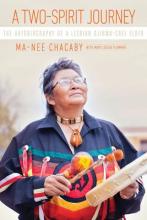
A Two-Spirit Journey is Ma-Nee Chacaby’s extraordinary account of her life as an Ojibwa-Cree lesbian. From her early, often harrowing memories of life and abuse in a remote Ojibwa community riven by poverty and alcoholism, Chacaby’s story is one of enduring and ultimately overcoming the social, economic, and health legacies of colonialism.
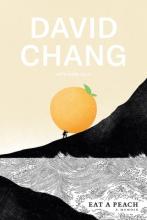
In 2004, David Chang opened a noodle restaurant named Momofuku in Manhattan's East Village, not expecting the business to survive its first year. In 2018, he was the owner and chef of his own restaurant empire, with 15 locations from New York to Australia, the star of his own hit Netflix show and podcast, was named one of the most influential people of the 21st century and had a following of over 1.2 million. In Eat a Peach, Chang opens up about his feelings of paranoia, self-confidence and pulls back the curtain on his struggles, failures and learned lessons. Deeply personal, honest and humble, Chang's story is one of passion and tenacity, against the odds
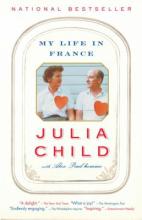
Although she would later singlehandedly create a new approach to American cuisine with her cookbook Mastering the Art of French Cooking and her television show The French Chef, Julia Child was not always a master chef. Indeed, when she first arrived in France in 1948 with her husband, Paul, who was to work for the USIS, she spoke no French and knew nothing about the country itself. But as she dove into French culture, buying food at local markets and taking classes at the Cordon Bleu, her life changed forever with her newfound passion for cooking and teaching.
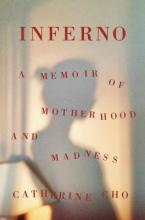
The riveting story of a mother who is separated from her newborn son and husband when committed to an involuntary psychiatric ward in New Jersey after a harrowing bout of postpartum psychosis.

Chung investigates the mysteries and complexities of her transracial adoption in this chronicle of unexpected family for anyone who has struggled to figure out where they belong.
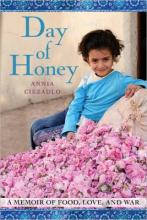
A portrait of life in the Middle East, Day of Honey weaves history, cuisine, and firsthand reporting into a fearless, intimate exploration of everyday survival. In the fall of 2003, Annia Ciezadlo spent her honeymoon in Baghdad. Over the next six years, while living in Baghdad and Beirut, she broke bread with Shiites and Sunnis, warlords and refugees, matriarchs and mullahs. Day of Honey is her memoir of the hunger for food and friendship—a communion that feeds the soul as much as the body in times of war.
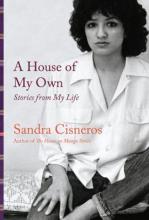
From the Chicago neighborhoods where she grew up and set her groundbreaking The House on Mango Street to her abode in Mexico, in a region where "my ancestors lived for centuries," the places Sandra Cisneros has lived have provided inspiration for her now-classic works of fiction and poetry. But a house of her own, where she could truly take root, has eluded her. With this collection--spanning nearly three decades, and including never-before-published work--Cisneros has come home at last.
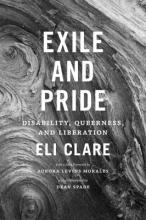
Blending prose and theory, personal experience and political debate, anger and compassion, Exile & Pride provides a window into a world where our whole selves in all their complexity can be loved and accepted.
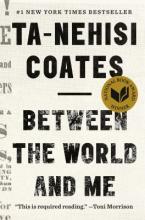
For Ta-Nehisi Coates, history has always been personal. At every stage of his life, he's sought in his explorations of history answers to the mysteries that surrounded him -- most urgently, why he, and other black people he knew, seemed to live in fear. What were they afraid of? In his trademark style -- a mix of lyrical personal narrative, reimagined history, essayistic argument, and reportage -- Coates provides readers a thrillingly illuminating new framework for understanding race: its history, our contemporary dilemma, and where we go from here.
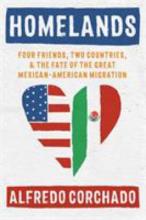
Homelands merges the political and the personal, telling the story of the last great Mexican migration through the eyes of four friends at a time when the Mexican population in the United States swelled from 700,000 people during the 1970s to more than 35 million people today. It is the narrative of the United States in a painful economic and political transition. As we move into a divisive, nativist new era of immigration politics, Homelands is a must-read to understand the past and future of the immigrant story in the United States, and the role of Mexicans in shaping America's history. A deeply moving book full of colorful characters searching for home, it is essential reading.
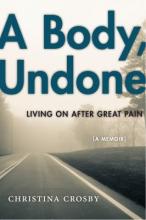
Deeply unsentimental, Crosby communicates in unflinching prose the experience of "diving into the wreck" of her body to acknowledge grief, and loss, but also to recognize the beauty, fragility, and dependencies of all human bodies. A memoir that is a meditation on disability, metaphor, gender, sex, and love, A Body, Undone is a compelling account of living on, as Crosby rebuilds her body and fashions a life through writing, memory, and desire.
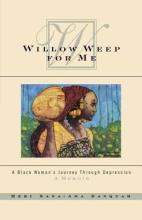
This moving memoir of an African-American woman's lifelong fight to identify and overcome depression offers an inspirational story of healing and emergence. Wrapped within Danquah's engaging account of this universal affliction is rare and insightful testimony about what it means to be black, female, and battling depression in a society that often idealizes black women as strong, nurturing caregivers. A startlingly honest, elegantly rendered depiction of depression, Willow Weep for Me calls out to all women who suffer in silence with a life-affirming message of recovery.
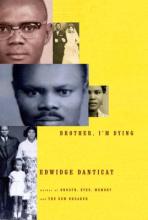
A powerfully moving family story that centers around the men closest to Danticat's heart - her father, Mira, and his older brother, Joseph. Told with tremendous feeling, this is a true-life epic on an intimate scale: a deeply affecting story of home and family—of two men’s lives and deaths, and of a daughter’s great love for them both.
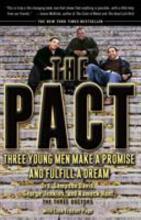
Filled with drama, courage, temptation, and, ultimately, triumph, The Pact is the uplifting story of three teenaged boys from broken homes in Newark, New Jersey, who pledged to support one another in realizing their dreams. Despite tremendous difficulties they faced, today two are doctors and one is a dentist.
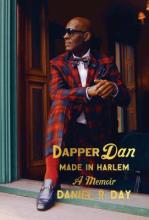
With his eponymous store on 125th Street in Harlem, Dapper Dan pioneered high-end streetwear in the early 1980s, remixing classic luxury-brand logos into his own flamboyant designs. But before reinventing fashion, he was a hungry boy with holes in his shoes, a teen who daringly gambled drug dealers out of their money, a young man in a prison cell who found nourishment in books, and, finally, a designer who broke barriers to outfit a whos-who of music, sport, and crime world celebrities in looks that went on to define an era.
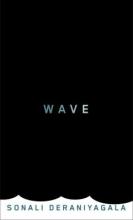
On the morning of December 26, 2004, on the southern coast of Sri Lanka, Sonali Deraniyagala lost her parents, her husband, and her two young sons in the tsunami she miraculously survived. In this brave and searingly frank memoir, she describes those first horrifying moments and her long journey since.
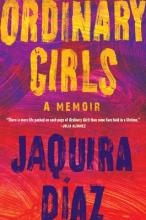
Jaquira Díaz writes an unflinching account of growing up as a queer biracial girl searching for home as her family splits apart and her mother struggles with mental illness and addiction. From her own struggles with depression and drug abuse to her experiences of violence to Puerto Rico's history of colonialism, every page vibrates with music and lyricism.
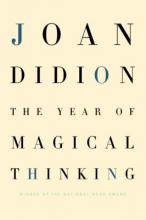
From one of America's iconic writers, a stunning book of electric honesty and passion. Joan Didion explores an intensely personal yet universal experience: a portrait of a marriage–and a life, in good times and bad–that will speak to anyone who has ever loved a husband or wife or child.
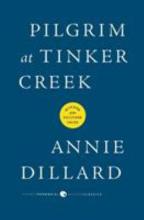
An exhilarating meditation on nature and its seasons—a personal narrative highlighting one year's exploration on foot in the author's own neighborhood in Tinker Creek, Virginia. In the summer, Dillard stalks muskrats in the creek and contemplates wave mechanics; in the fall she watches a monarch butterfly migration and dreams of Arctic caribou. She tries to con a coot; she collects pond water and examines it under a microscope. She unties a snake skin, witnesses a flood, and plays 'King of the Meadow' with a field of grasshoppers.
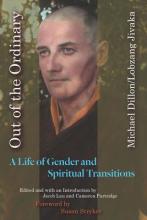
Out of the Ordinary is the memoir of Dr. Michael Dillon/ Lobzang Jivaka (1915-1962), a transsexual man and Buddhist monastic novice chiefly known to scholars of sex, gender and sexuality for his pioneering transition from female to male between 1939 and 1949, and for his groundbreaking 1946 book Self: A Study in Ethics and Endocrinology.
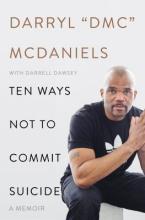
The legendary rap star and cofounder of Run D.M.C. speaks out about his battle with depression and overcoming suicidal thoughts -- one of the most devastating yet little known health issues plaguing the black community today.
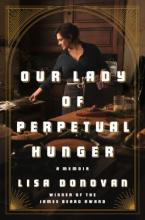
Our Lady of Perpetual Hunger is Donovan's searing, beautiful, and searching chronicle of reclaiming her own story and the narrative of the women who came before her. Her family's matriarchs found strength and passion through food, and they inspired Donovan's accomplished career. Donovan's love language is hospitality, and she wants to welcome everyone to the table of good food and fairness.
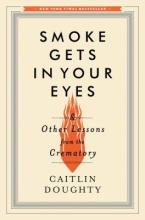
Smoke Gets in Your Eyes tells an unusual coming-of-age story full of bizarre encounters and unforgettable scenes. Caring for dead bodies of every color, shape, and affliction, Caitlin soon becomes an intrepid explorer in the world of the dead. She describes how she swept ashes from the machines (and sometimes onto her clothes) and reveals the strange history of cremation and undertaking, marveling at bizarre and wonderful funeral practices from different cultures.
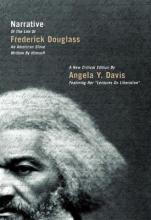
A masterpiece of African American literature, Frederick Douglass's Narrative is the powerful story of an enslaved youth coming into social and moral consciousness by disobeying his white slavemasters and secretly teaching himself to read. Achieving literacy emboldens Douglass to resist, escape and ultimately achieve his freedom. After escaping slavery, Douglass became a leader in the anti-slavery and women's rights movements, a bestselling author and U.S. diplomat.
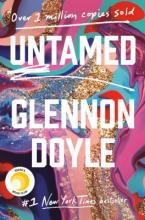
Soulful and uproarious, forceful and tender, Untamed is both a memoir and a galvanizing wake-up call. It offers a piercing, electrifying examination of the restrictive expectations women are issued from birth; shows how hustling to meet those expectations leaves women feeling dissatisfied and lost; and reveals that when we quit abandoning ourselves and instead abandon the world's expectations of us, we become women who can finally look at our lives and recognize: There She Is. Untamed shows us how to be brave. As Glennon insists: The braver we are, the luckier we get.
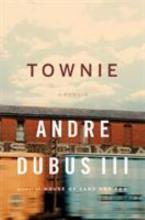
After their parents divorce in the 1970's, Andre Dubus III and his three siblings grew up with their exhausted working mother in a depressed Massachusetts mill town saturated with drugs and crime. To protect himself and those he loved from street violence, Andre learned to use his fists so well that he was even scared of himself. He was on a fast track to getting killed, or killing someone else, or to beatings-for-pay as a boxer. Nearby, his father, an eminent author, taught on a college campus and took the kids out on Sundays. The clash of worlds couldn't have been more stark or more difficult for a son to communicate to a father. Only by becoming a writer himself could Andre begin to bridge the abyss and save himself.
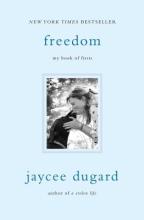
When Jaycee Dugard was eleven years old, she was abducted from a school bus stop within sight of her home in South Lake Tahoe, California. She was missing for more than eighteen years, held captive by Philip and Nancy Garrido, and gave birth to two daughters during her imprisonment. A Stolen Life told the story of Jaycee's life from her abduction in 1991 through her reappearance in 2009. Freedom: My Book of Firsts is about everything that happened next. This raw and inspiring book will remind readers that there is, as Jaycee writes, 'life after something tragic happens.'

As a working mother and poet-lecturer, Camille Dungy’s livelihood depended on travel. She crisscrossed America and beyond with her daughter in tow, history shadowing their steps, always intensely aware of how they were perceived, not just as mother and child but as black women. From the San Francisco of settlers’ dreams to the slave-trading ports of Ghana, from snow-white Maine to a festive yet threatening bonfire in the Virginia pinewoods, Dungy finds fear and trauma but also mercy, kindness, and community. Penetrating and generous, this is an essential guide for a troubled land.
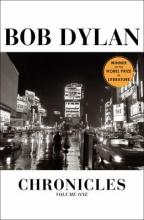
Through Dylan's eyes and open mind, we see Greenwich Village, circa 1961, when he first arrives in Manhattan. Dylan's New York is a magical city of possibilities -- smoky, nightlong parties; literary awakenings; transient loves and unbreakable friendships. Elegiac observations are punctuated by jabs of memories, penetrating and tough. With the book's side trips to New Orleans, Woodstock, Minnesota and points west, Chronicles: Volume One is an intimate and intensely personal recollection of extraordinary times.
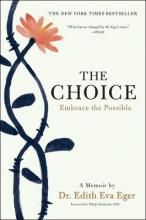
A powerful, moving memoir, and a practical guide to healing, written by Dr. Edie Eger, an eminent psychologist whose own experiences as a Holocaust survivor help her treat patients suffering from traumatic stress disorders.
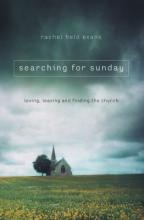
Like millions of her millennial peers, Rachel Held Evans didn't want to go to church anymore. The hypocrisy, the politics, the gargantuan building budgets, the scandals--church culture seemed so far removed from Jesus. Yet despite her cynicism and misgivings, something kept drawing her back to Church. And so she set out on a journey to understand Church and to find her place in it.

As a member of the strictly religious Satmar sect of Hasidic Judaism, Deborah Feldman grew up under a code of relentlessly enforced customs governing everything from what she could wear and to whom she could speak to what she was allowed to read.Trapped as a teenager in a sexually and emotionally dysfunctional marriage to a man she barely knew, the tension between Deborah’s desires and her responsibilities as a good Satmar girl grew more explosive until she gave birth at nineteen and realized that, for the sake of herself and her son, she had to escape.
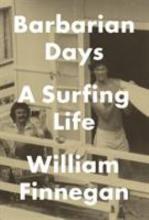
Barbarian Days is William Finnegan’s memoir of an obsession, a complex enchantment. Surfing only looks like a sport. To initiates, it is something else entirely: a beautiful addiction, a demanding course of study, a morally dangerous pastime, a way of life.
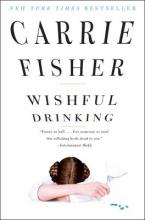
In Wishful Drinking, Carrie Fisher tells the true and intoxicating story of her life with inimitable wit. Born to celebrity parents, she was picked to play a princess in a little movie called Star Wars when only 19 years old. "But it isn't all sweetness and light sabres." Alas, aside from a demanding career and her role as a single mother, Carrie also spends her free time battling addiction, weathering the wild ride of manic depression and lounging around various mental institutions.
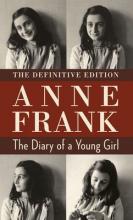
Compelling and candid, this diary introduced the world to a girl filled with the emotional concerns of a typical teenager, but living in stifling and terrifying circumstances.
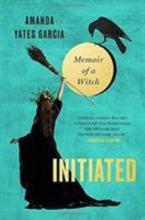
An initiation signals a beginning: a door opens and you step through. Traditional Wiccan initiates are usually brought into the craft through a ceremony with a High Priestess. But even though Amanda Yates Garcia's mother, a practicing witch herself, initiated her into the earth-centered practice of witchcraft when she was 13 years old, Amanda's real life as a witch only began when she underwent a series of spontaneous initiations of her own.
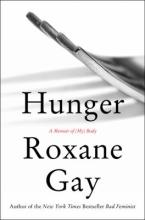
With the bracing candor, vulnerability, and power that have made her one of the most admired writers of her generation, Roxane explores what it means to learn to take care of yourself: how to feed your hungers for delicious and satisfying food, a smaller and safer body, and a body that can love and be loved—in a time when the bigger you are, the smaller your world becomes.
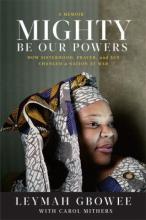
In 2003, the passionate and charismatic Gbowee helped organize and then led the Liberian Mass Action for Peace, a coalition of Christian and Muslim women who sat in public protest, confronting Liberia's ruthless president and rebel warlords, and even held a sex strike. With an army of women, Gbowee helped lead her nation to peace
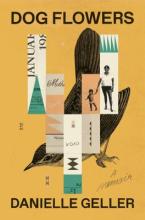
After Danielle Geller's mother dies of a withdrawal from alcohol during a period of homelessness, she is forced to return to Florida. Using her training as a librarian and archivist, Geller collects her mother's documents, diaries, and photographs into a single suitcase and begins on a journey of confronting her family's history and the decisions she's been forced to make, a journey that will end at her mother's home: the Navajo reservation.
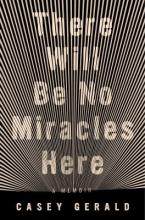
When Casey--following in the footsteps of his father, a gridiron legend who literally broke his back for the team--is recruited to play football at Yale, he enters a world he's never dreamed of, the anteroom to secret societies and success on Wall Street, in Washington, and beyond. But even as he attains the inner sanctums of power, Casey sees how the world crushes those who live at its margins. He sees how the elite perpetuate the salvation stories that keep others from rising. And he sees, most painfully, how his own ascension is part of the scheme.
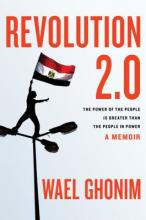
The revolutions sweeping the Middle East in 2011 were unlike any the world had ever seen. Brutal regimes that had been in power for many decades were suddenly swarmed by unstoppable mobs of freedom seekers. Now, one of the key figures behind the Egyptian uprising tells the riveting inside story of what happened and presents lessons for all of us on how to unleash the power of crowds.
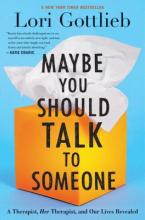
Gottlieb, a therapist with a Los Angeles practice, faced a crisis that caused her world to come crashing down. Enter Wendell, the quirky but seasoned therapist who seems to have come straight from Therapist Central Casting. Yet he will turn out to be anything but. Now Gottlieb invites us into her world as both clinician and patient, examining the truths and fictions we tell ourselves and others as we teeter on the tightrope between love and desire, meaning and mortality, guilt and redemption, terror and courage, hope and change.
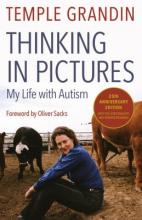
Writing from the dual perspectives of a scientist and an autistic person, she tells us how that country is experienced by its inhabitants and how she managed to breach its boundaries to function in the outside world. What emerges in Thinking in Pictures is the document of an extraordinary human being, one who, in gracefully and lucidly bridging the gulf between her condition and our own, sheds light on the riddle of our common identity.
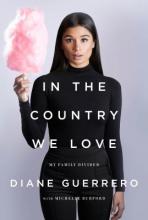
In the Country We Love is a moving, heartbreaking story of one woman's extraordinary resilience in the face of the nightmarish struggles of undocumented residents in this country. There are over 11 million undocumented immigrants living in the US, many of whom have citizen children, whose lives here are just as precarious, and whose stories haven't been told. Written with Michelle Burford, this memoir is a tale of personal triumph that also casts a much-needed light on the fears that haunt the daily existence of families likes the author's and on a system that fails them over and over.
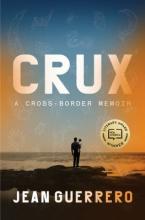
Marco [Antonio] was a self-taught genius at fixing and creating things--including a mythology about himself as a shaman, a dreamcaster, and an animal whisperer ... Before long Marco goes on the run from his family and responsibilities--to Asia, to Europe, and eventually back to Mexico--with long crack and whiskey binges, suffering from what he claimed were CIA mind-control experiments. As soon as she's old enough, [the author] follows [and] searches for explanations for her father's behavior other than schizophrenia, the diagnosis her mother whispered to [her].
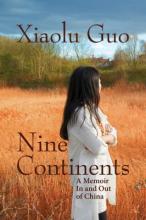
Nine Continents presents a fascinating portrait of China in the eighties and nineties, how the Cultural Revolution shaped families, and how the country's economic ambitions gave rise to great change. It is also a moving testament to the birth of a creative spirit, and of a new generation being raised to become citizens of the world. It confirms Xiaolu Guo as one of world literature's most urgent voices.
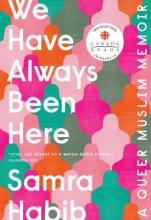
When her family came to Canada as refugees, Samra encountered a whole new host of challenges: bullies, racism, the threat of poverty, and an arranged marriage. Backed into a corner, her need for a safe space--in which to grow and nurture her creative, feminist spirit--became dire. The men in her life wanted to police her, the women in her life had only shown her the example of pious obedience, and her body was a problem to be solved. So begins an exploration of faith, art, love, and queer sexuality, a journey that takes her to the far reaches of the globe to uncover a truth that was within her all along.
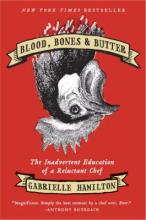
Blood, Bones & Butter follows an unconventional journey through the many kitchens Hamilton has inhabited through the years: the rural kitchen of her childhood, where her adored mother stood over the six-burner with an oily wooden spoon in hand; the kitchens of France, Greece, and Turkey, where she was often fed by complete strangers and learned the essence of hospitality; Hamilton’s own kitchen at Prune, with its many unexpected challenges; and the kitchen of her Italian mother-in-law, who serves as the link between Hamilton’s idyllic past and her own future family—the result of a prickly marriage that nonetheless yields lasting dividends. By turns epic and intimate, Gabrielle Hamilton’s story is told with uncommon honesty, grit, humor, and passion.
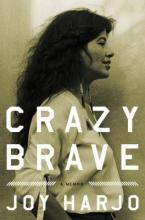
In this transcendent memoir, grounded in tribal myth and ancestry, music and poetry, Joy Harjo, one of our leading Native American voices, details her journey to becoming a poet. Narrating the complexities of betrayal and love, Crazy Brave is a memoir about family and the breaking apart necessary in finding a voice. Harjo’s tale of a hardscrabble youth, young adulthood, and transformation into an award-winning poet and musician is haunting, unique, and visionary.
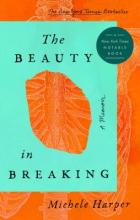
A series of connected personal stories drawn from the author's life and work as an ER doctor that explores how we are all broken--physically, emotionally, and psychically--and what we can do to heal ourselves as we try to heal others.
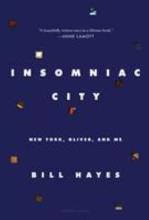
Bill Hayes came to New York City in 2009 with a one-way ticket and only the vaguest idea of how he would get by. But, at forty-eight years old, having spent decades in San Francisco, he craved change. Grieving over the death of his partner, he quickly discovered the profound consolations of the city's incessant rhythms, the sight of the Empire State Building against the night sky, and New Yorkers themselves, kindred souls that Hayes, a lifelong insomniac, encountered on late-night strolls with his camera.
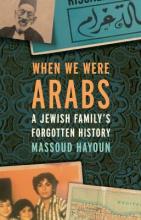
When We Were Arabs, a stunning debut that showcases the gorgeous prose of writer Massoud Hayoun, tells the stories of Oscar and Daida, bringing their worlds alive in vivid poetic prose, and in so doing shattering our contemporary understanding of what makes an Arab, what makes a Jew, and how we draw the lines between us over which we do battle.
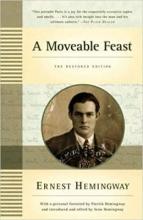
Published posthumously in 1964, A Moveable Feast remains one of Ernest Hemingway's most beloved works. It is his classic memoir of Paris in the 1920s, filled with irreverent portraits of other expatriate luminaries such as F. Scott Fitzgerald and Gertrude Stein; tender memories of his first wife, Hadley; and insightful recollections of his own early experiments with his craft. It is a literary feast, brilliantly evoking the exuberant mood of Paris after World War I and the youthful spirit, unbridled creativity, and unquenchable enthusiasm that Hemingway himself epitomized.

In 1985, Anthony Ray Hinton was arrested and charged with two counts of capital murder in Alabama. Stunned, confused, and only twenty-nine years old, Hinton knew that it was a case of mistaken identity and believed that the truth would prove his innocence and ultimately set him free.
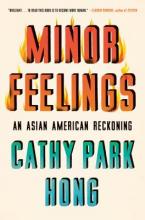
Poet and essayist Cathy Park Hong blends memoir, cultural criticism, and history to expose the truth of racialized consciousness in America. Binding these essays together is Hong's theory of "minor feelings."
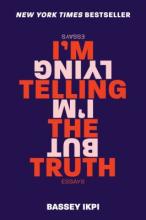
In I'm Telling the Truth, but I'm Lying Bassey Bassey Ikpi explores her life--as a Nigerian-American immigrant, a black woman, a slam poet, a mother, a daughter, an artist--through the lens of her mental health and diagnosis of bipolar II and anxiety. Her remarkable memoir in essays implodes our preconceptions of the mind and normalcy as Bassey bares her own truths and lies for us all to behold with radical honesty and brutal intimacy.
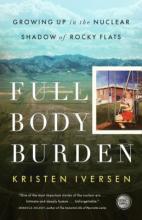
Full Body Burden is a haunting work of narrative nonfiction about a young woman, Kristen Iversen, growing up in a small Colorado town close to Rocky Flats, a secret nuclear weapons plant once designated "the most contaminated site in America." It's the story of a childhood and adolescence in the shadow of the Cold War, in a landscape at once startlingly beautiful and—unknown to those who lived there—tainted with invisible yet deadly particles of plutonium.
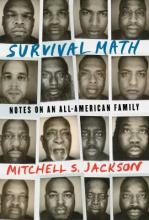
With a poet's gifted ear, a novelist's sense of narrative, and a journalist's unsentimental eye, Mitchell S. Jackson candidly explores his tumultuous youth in the other America. Survival Math takes its name from the calculations Mitchell and his family made to keep safe -- to stay alive -- in their community, a small black neighborhood in Portland, Oregon blighted by drugs, violence, poverty, and governmental neglect. Survival Math is both a personal reckoning and a vital addition to the national conversation about race.
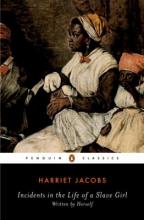
The true story of an individual's struggle for self-identity, self-preservation, and freedom, Incidents in the Life of a Slave Girl remains among the few extant slave narratives written by a woman. This autobiographical account chronicles the remarkable odyssey of Harriet Jacobs (1813–1897) whose dauntless spirit and faith carried her from a life of servitude and degradation in North Carolina to liberty and reunion with her children in the North.
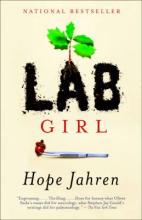
Lab Girl is a book about work, love, and the mountains that can be moved when those two things come together. It is told through Jahren’s stories: about her childhood in rural Minnesota with an uncompromising mother and a father who encouraged hours of play in his classroom’s labs; about how she found a sanctuary in science, and learned to perform lab work done “with both the heart and the hands”; and about the inevitable disappointments, but also the triumphs and exhilarating discoveries, of scientific work.
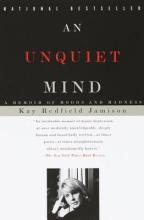
The personal story of a manic depressive and authority on the subject describes the onset of the illness during her teenage years, and her determined journey through the range of available treatments.
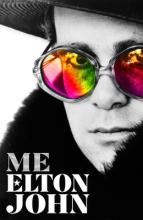
In Me, Elton also writes powerfully about getting clean and changing his life, about finding love with David Furnish and becoming a father. In a voice that is warm, humble, and open, this is Elton on his music and his relationships, his passions and his mistakes. This is a story that will stay with you by a living legend.
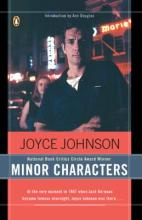
During the late Fifties, as a cultural revolution blossomed in downtown New York, the 21-year-old author was part of a circle that included Jack Kerouac, Allen Ginsberg, LeRoi and Hettie Jones, Gregory Corso, Robert Frank, Willem de Kooning and Franz Kline. Her story starts as a tale of adolescent rebellion and then becomes a meditation on the relations between the sexes.
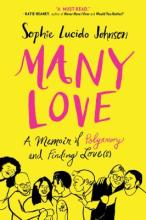
Sophie Lucido Johnson gets a lot of questions when she tells people that she's polyamorous. Many Love is an intimate look at this often misunderstood practice: its history, its misconceptions, and Sophie's personal transformation from serial monogamist to proud polyamorist. After trying for years to emulate her boomer parents' forty-year and still-going-strong marriage, Sophie realized that maybe the love she was looking for was down a road less traveled. In this bold, illustrated memoir, she explores her sexuality, her values, and the versions of love our society accepts and practices. Along the way, she shares what it's like to play on Tinder side-by-side with your boyfriend, encounter--and surmount--many types of jealousy, learn the power of female friendship, and other amazing things that happened when she stopped looking for "the one." In a lot of ways, Many Love is Sophie's love letter to everyone she has ever cared for. Witty, insightful, and complete with illustrations, this debut provides a memorable glimpse into an unconventional life.
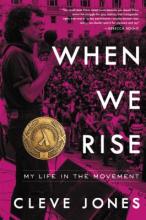
A longtime LGBTQ and AIDS activist offers an account of his life from sexually liberated 1970s San Francisco, through the AIDS crisis, and up to his present-day involvement with the marriage equality battle.
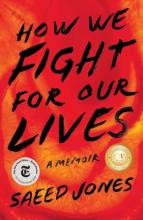
Haunted and haunting, Jones's memoir tells the story of a young, black, gay man from the South as he fights to carve out a place for himself, within his family, within his country, within his own hopes, desires, and fears. Through a series of vignettes that chart a course across the American landscape, Jones draws readers into his boyhood and adolescence--into tumultuous relationships with his mother and grandmother, into passing flings with lovers, friends and strangers. Each piece builds into a larger examination of race and queerness, power and vulnerability, love and grief: a portrait of what we all do for one another--and to one another--as we fight to become ourselves.
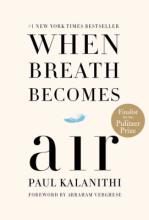
At the age of thirty-six, on the verge of completing a decade's worth of training as a neurosurgeon, Paul Kalanithi was diagnosed with stage IV lung cancer. One day he was a doctor treating the dying, and the next he was a patient struggling to live. And just like that, the future he and his wife had imagined evaporated. When Breath Becomes Air chronicles Kalanithi's transformation from a naïve medical student "possessed," as he wrote, "by the question of what, given that all organisms die, makes a virtuous and meaningful life" into a neurosurgeon at Stanford working in the brain, the most critical place for human identity, and finally into a patient and new father confronting his own mortality.

An enterprising teenager in Malawi builds a windmill from scraps he finds around his village and brings electricity, and a future, to his family.

The author reveals how, shortly after giving birth to a child she adored, she drank herself into the same numbness that nearly devoured her charismatic but troubled mother, reaching the brink of suicide before a spiritual awakening led her to sobriety.
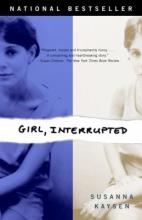
In 1967, after a session with a psychiatrist she'd never seen before, eighteen-year-old Susanna Kaysen was put in a taxi and sent to McLean Hospital. She spent most of the next two years on the ward for teenage girls in a psychiatric hospital as renowned for its famous clientele--Sylvia Plath, Robert Lowell, James Taylor, and Ray Charles--as for its progressive methods of treating those who could afford its sanctuary. Kaysen's memoir encompasses horror and razor-edged perception while providing vivid portraits of her fellow patients and their keepers. It is a brilliant evocation of a "parallel universe" set within the kaleidoscopically shifting landscape of the late sixties. Girl, Interrupted is a clear-sighted, unflinching document that gives lasting and specific dimension to our definitions of sane and insane, mental illness and recovery.
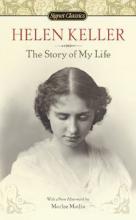
In this autobiography, initially published in 1903, Helen Keller recalls her remarkable life as a blind and deaf woman taught to communicate by Ann Sullivan. Here among other memories, Keller describes her epiphany at the water pump when she connected the physical world with its linguistic counterpart. Keller was eventually educated at Radcliffe University, where she graduated with honors.

A memoir by the co-founder of the Black Lives Matter movement explains the movement's position of love, humanity, and justice, challenging perspectives that have negatively labeled the movement's activists while calling for essential political changes.
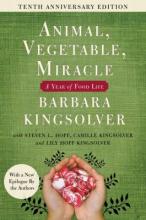
When Kingsolver and her family move from suburban Arizona to rural Appalachia, they take on a new challenge: to spend a year on a locally produced diet, paying close attention to the provenance of all they consume. 'Our highest shopping goal was to get our food from so close to home, we'd know the person who grew it. Often that turned out to be ourselves as we learned to produce what we needed, starting with dirt, seeds, and enough knowledge to muddle through.
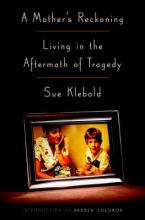
On April 20, 1999, Eric Harris and Dylan Klebold walked into Columbine High School in Littleton, Colorado. Over the course of minutes, they would kill twelve students and a teacher and wound twenty-four others before taking their own lives. For the last sixteen years, Sue Klebold, Dylan’s mother, has lived with the indescribable grief and shame of that day. How could her child, the promising young man she had loved and raised, be responsible for such horror? And how, as his mother, had she not known something was wrong? These are questions that Klebold has grappled with every day since the Columbine tragedy. In A Mother’s Reckoning, she chronicles with unflinching honesty her journey as a mother trying to come to terms with the incomprehensible.
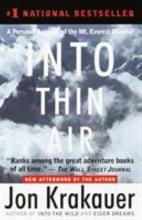
When Jon Krakauer reached the summit of Mt. Everest in the early afternoon of May 10, 1996, he hadn't slept in fifty-seven hours and was reeling from the brain-altering effects of oxygen depletion. As he turned to begin his long, dangerous descent from 29,028 feet, twenty other climbers were still pushing doggedly toward the top. No one had noticed that the sky had begun to fill with clouds. Six hours later and 3,000 feet lower, in 70-knot winds and blinding snow, Krakauer collapsed in his tent, freezing, hallucinating from exhaustion and hypoxia, but safe. The following morning he learned that six of his fellow climbers hadn't made it back to their camp and were in a desperate struggle for their lives. When the storm finally passed, five of them would be dead, and the sixth so horribly frostbitten that his right hand would have to be amputated.
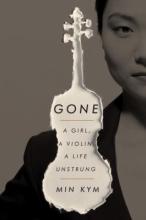
At seven years old Min Kym was a prodigy, the youngest ever student at the famed Purcell School of Music. At eleven she won her first international prize. And at twenty-one, she found "the one," the violin that would transform her life: a rare 1696 Stradivarius. Her career soared. She recorded the Brahms concerto and a world tour was planned.

Anne Lamott takes us on a journey through her often troubled past to illuminate her devout but quirky walk of faith. In a narrative spiced with stories and scripture, with diatribes, laughter, and tears, Lamott tells how, against all odds, she came to believe in God and then, even more miraculously, in herself. She shows us the myriad ways in which this sustains and guides her, shining the light of faith on the darkest part of ordinary life and exposing surprising pockets of meaning and hope.
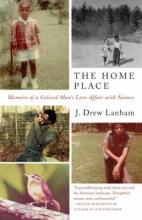
Dating back to slavery, Edgefield County, South Carolina—a place ”easy to pass by on the way somewhere else"—has been home to generations of Lanhams. In The Home Place, readers meet these extraordinary people, including Drew himself, who over the course of the 1970s falls in love with the natural world around him. As his passion takes flight, however, he begins to ask what it means to be “the rare bird, the oddity”—to find joy and freedom in the same land his ancestors were tied to by forced labor, and then to be a black man in a profoundly white field. This book is a remarkable meditation on nature and belonging, at once a deeply moving memoir and riveting exploration of the contradictions of black identity in the rural South—and in America today.
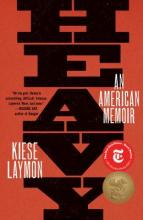
Laymon writes ... about the physical manifestations of violence, grief, trauma, and abuse on his own body, [examining] his own eating disorder and gambling addiction as well as similar issues that run throughout his family. Through self-exploration, storytelling, and honest conversation with family and friends, Heavy seeks to bring what has been hidden into the light and to reckon with all of its myriad sources, from the most intimate--a mother-child relationship--to the most universal--a society that has undervalued and abused black bodies for centuries.
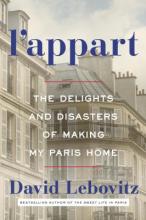
A chef buys an apartment in Paris and endures the headaches and excitement of renovating his own corner of paradise in the City of Light.
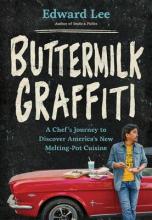
There is a new American culinary landscape developing around us, and it’s one that chef Edward Lee is proud to represent. In a nation of immigrants who bring their own culinary backgrounds to this country, what happens one or even two generations later? What does their cuisine become? It turns into a cuisine uniquely its own and one that Lee argues makes America the most interesting place to eat on earth.
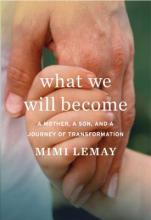
From the age of two-and-a-half "Em" adamantly told his family he was a boy. While his mother Mimi struggled to understand and come to terms with the fact that her child may be transgender, the journey to uncover the source of her child's inner turmoil unearthed ghosts from Mimi's past and her own struggle to live an authentic life. Raised in an ultra-Orthodox Jewish family, her role as a woman largely preordained from cradle to grave, Mimi eventually made the painful decision to leave her religious community and the strict gender roles it upheld. Helping her son-- renamed Jacob-- Mimi explains how painful events from the past can be redeemed to give us hope for the future.
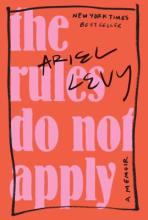
When thirty-eight-year-old New Yorker writer Ariel Levy left for a reporting trip to Mongolia in 2012, she was pregnant, married, financially secure, and successful on her own terms. A month later, none of that was true. In this profound and beautiful memoir, Levy chronicles the adventure and heartbreak of being “a woman who is free to do whatever she chooses.” Her own story of resilience becomes an unforgettable portrait of the shifting forces in our culture, of what has changed—and of what is eternal.
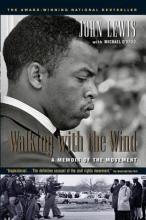
Written with charm, warmth, and honesty, Walking with the Wind offers rare insight into the movement and the personalities of all the civil rights leaders-what was happening behind the scenes, the infighting, struggles, and triumphs. Lewis takes us from the Nashville lunch counter sit-ins to the Edmund Pettus Bridge in Selma, Alabama, where he led more than five hundred marchers on what became known as "Bloody Sunday." While there have been exceptional books on the movement, there has never been a front-line account by a man like John Lewis.
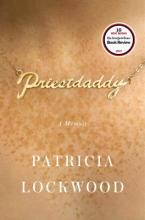
Father Greg Lockwood is unlike any Catholic priest you have ever met - a man who lounges in boxer shorts, who loves action movies, and whose constant jamming on the guitar reverberates "like a whole band dying in a plane crash in 1972". His daughter is an irreverent poet who long ago left the church's country. When an unexpected crisis leads her and her husband to move back into her parents' rectory, their two worlds collide. Lockwood pivots from the raunchy to the sublime, from the comic to the deeply serious, exploring issues of belief, belonging, and personhood. Priestdaddy is an entertaining, unforgettable portrait of a deeply odd religious upbringing and how one balances a hard-won identity with the weight of family and tradition.
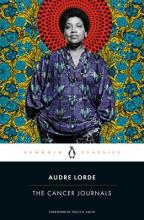
The Cancer Journals is a startling, powerful account of Audre Lorde's experience with breast cancer and mastectomy. Long before narratives explored the silences around illness and women's pain, Lorde questioned the rules of conformity for women's body images and supported the need to confront physical loss not hidden by prosthesis. Living as a "black, lesbian, mother, warrior, poet," Lorde heals and re-envisions herself on her own terms and offers her voice, grief, resistance, and courage to those dealing with their own diagnosis. Poetic and profoundly feminist, Lorde's testament gives visibility and strength to women with cancer to define themselves, and to transform their silence into language and action.
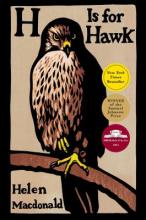
As a child Helen Macdonald was determined to become a falconer. She learned the arcane terminology and read all the classic books, including T.H. White's tortured masterpiece, The Goshawk, which describes White's struggle to train a hawk as a spiritual contest. When her father dies and she is knocked sideways by grief, she becomes obsessed with the idea of training her own goshawk. She buys Mabel ... on a Scottish quayside and takes her home to Cambridge. Then she fills the freezer with hawk food and unplugs the phone, ready to embark on the long, strange business of trying to train this wildest of animals.
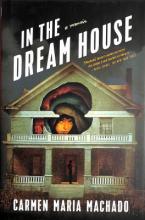
The author's engrossing and wildly innovative account of a relationship gone bad, and a bold dissection of the mechanisms and cultural representations of psychological abuse. Tracing the full arc of a harrowing relationship with a charismatic but volatile woman, Machado struggles to make sense of how what happened to her shaped the person she was becoming.
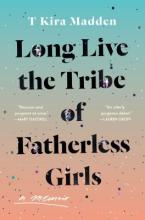
With unflinching honesty and lyrical prose, spanning from 1960s Hawaii to the present-day struggle of a young woman mourning the loss of a father while unearthing truths that reframe her reality, Long Live the Tribe of Fatherless Girls is equal parts eulogy and love letter. It's a story about trauma and forgiveness, about families of blood and affinity, both lost and found, unmade and rebuilt, crooked and beautiful.

Heart Berries is a powerful, poetic memoir of a woman's coming of age on the Seabird Island Indian Reservation in the Pacific Northwest. Having survived a profoundly dysfunctional upbringing only to find herself hospitalized and facing a dual diagnosis of post traumatic stress disorder and bipolar II disorder; Terese Marie Mailhot is given a notebook and begins to write her way out of trauma. The triumphant result is Heart Berries, a memorial for Mailhot's mother, a social worker and activist who had a thing for prisoners; a story of reconciliation with her father-an abusive drunk and a brilliant artist-who was murdered under mysterious circumstances; and an elegy on how difficult it is to love someone while dragging the long shadows of shame.
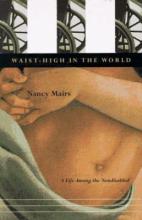
In Waist-High in the World, Mairs explores in her inimitable voice the subject that has always been in the background of her writing, but which she takes on here for the first time at book-length - disability and the way it shapes a life.

As recipient of the Nobel Peace Prize, president of the African National Congress, and head of the anti-apartheid movement, Nelson Mandela has been one of the world's great moral and political leaders. The story of his life - from the early development of his political consciousness to his eventful quarter century behind bars to his momentous victory in South Africa's first-ever multiracial elections - is an epic account of struggle, setback, renewed hope, and ultimate triumph.
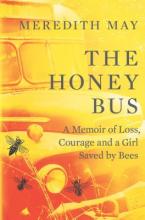
Meredith May recalls the first time a honeybee crawled on her arm. She was five years old, her parents had recently split and suddenly she found herself in the care of her grandfather, an eccentric beekeeper who made honey in a rusty old military bus in the yard. That first close encounter was at once terrifying and exhilarating for May, and in that moment she discovered that everything she needed to know about life and family was right before her eyes, in the secret world of bees.
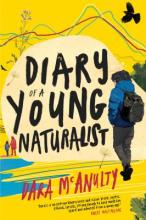
From sixteen-year-old Dara McAnulty, a globally renowned figure in the youth climate activist movement, comes a memoir about loving the natural world and fighting to save it.

A timely and captivating memoir about gender identity set against the backdrop of the transgender equality movement, by a leading activist and the National Press Secretary for the Human Rights Campaign, the nation's largest LGBTQ civil rights organization. Sarah McBride is on a mission to fight for transgender rights around the world. But before she was a prominent activist, and before she became the first transgender person to speak at the Democratic National Convention in 2016, she was a teenager struggling with her identity.
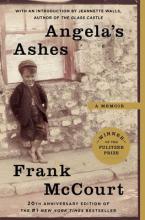
"When I look back on my childhood I wonder how I managed to survive at all. It was, of course, a miserable childhood: the happy childhood is hardly worth your while. Worse than the ordinary miserable childhood is the miserable Irish childhood, and worse yet is the miserable Irish Catholic childhood." So begins the luminous memoir of Frank McCourt, born in Depression-era Brooklyn to recent Irish immigrants and raised in the slums of Limerick, Ireland. Frank's mother, Angela, has no money to feed the children since Frank's father, Malachy, rarely works, and when he does he drinks his wages. Yet Malachy - exasperating, irresponsible and beguiling - does nurture in Frank an appetite for the one thing he can provide: a story.
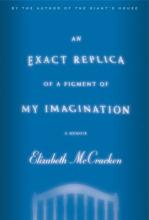
The author traces her marriage and relocation to France at the height of her writing career, her devastation over her stillborn son in her ninth month of pregnancy, and her heart-wrenching grieving process.
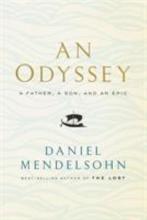
Presents the story of a father and son's transformative shared journey in reading in the wake of the father's late-in-life enrollment in his son's undergraduate seminar, where the two engaged in debates over how to interpret Homer's classic masterpiece.
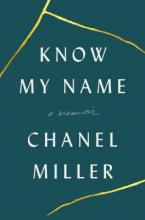
She was know to the world as Emily Doe when she stunned millions with a letter. Brock Turner had been sentenced to just six months in county jail after he was found sexually assaulting her on Stanford's campus. Her victim impact statement was posted on BuzzFeed, where it instantly went viral--viewed by almost eleven million people within four days, it was translated globally and read on the floor of Congress; it inspired changes in California law and the recall of the judge in the case. Thousands wrote to say that she had given them the courage to share their own experiences of assault for the first time. Now she reclaims her identity to tell her story of trauma, transcendence, and the power of words.

A memoir by a former British National Heath Service employee and single parent describes her battles with early onset Alzheimer's, the management techniques she has developed to maintain her independence, and her efforts to make sense of her shifting world.
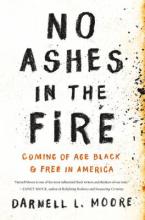
From a leading journalist and activist comes a brave, beautifully wrought survival story of navigating childhood during the height of the AIDS and crack epidemics, searching for intimacy and love as a young gay man, and ultimately finding a calling fighting for justice and liberation in the Black Lives Matter and LGBTQ movements.
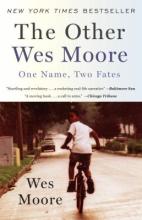
Two kids with the same name were born blocks apart in the same decaying city within a few years of each other. One grew up to be a Rhodes Scholar, army officer, White House Fellow, and business leader. The other is serving a life sentence in prison. Here is the story of two boys and the journey of a generation.
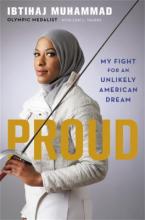
Growing up in New Jersey as the only African American Muslim at school, Ibtihaj Muhammad always had to find her own way. When she discovered fencing, a sport traditionally reserved for the wealthy, she had to defy expectations and make a place for herself in a sport she grew to love.
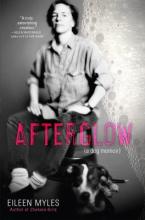
The author writes an account of her relationship with her pit bull Rosie. Starting from the emptiness following Rosie's death, the author launches a heartfelt and fabulist investigation into the true nature of the bond between pet and pet owner.
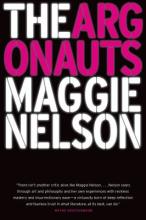
Maggie Nelson's The Argonauts is a genre-bending memoir, a work of "autotheory" offering fresh, fierce, and timely thinking about desire, identity, and the limitations and possibilities of love and language. At its center is a romance: the author's relationship with artist Harry Dodge. This story, which includes the author's account of falling in love with Dodge, who is fluidly gendered, as well as her journey to and through a pregnancy, is an intimate portrayal of the complexities and joys of (queer) family making.
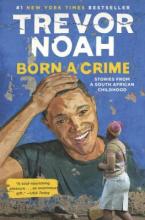
Trevor Noah’s unlikely path from apartheid South Africa to the desk of The Daily Show began with a criminal act: his birth. Trevor was born to a white Swiss father and a black Xhosa mother at a time when such a union was punishable by five years in prison. Living proof of his parents’ indiscretion, Trevor was kept mostly indoors for the earliest years of his life, bound by the extreme and often absurd measures his mother took to hide him from a government that could, at any moment, steal him away. Finally liberated by the end of South Africa’s tyrannical white rule, Trevor and his mother set forth on a grand adventure, living openly and freely and embracing the opportunities won by a centuries-long struggle.
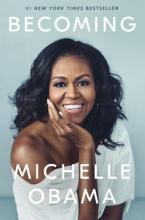
In a life filled with meaning and accomplishment, Michelle Obama has emerged as one of the most iconic and compelling women of our era. As First Lady of the United States of America, she helped create the most welcoming and inclusive White House in history. With unerring honesty and lively wit, she describes her triumphs and her disappointments, both public and private. A deeply personal reckoning of a woman of soul and substance who has steadily defied expectations.
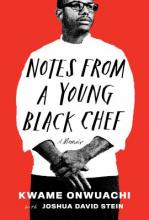
As a boy Onwuachi was sent from the Bronx to rural Nigeria by his mother to 'learn respect.' Through food, he broke out of a dangerous downward spiral and embarked on a new beginning at the bottom of the culinary food chain before going on to train in the kitchens of some of the most acclaimed restaurants in the country and appearing as a contestant on Top Chef. His love of food and cooking was a constant, even when the road to success was riddled with potholes. Here he shares the pursuit of his passions, despite the odds. Each chapter includes one recipe.

Following her retirement from Princeton University, celebrated historian Dr. Nell Irvin Painter surprised everyone in her life by returning to school--in her sixties--to earn a BFA and MFA in painting. In Old in Art School, she travels from her beloved Newark to the prestigious Rhode Island School of Design; finds meaning in the artists she loves, even as she comes to understand how they may be undervalued; and struggles with the unstable balance between the pursuit of art and the inevitable, sometimes painful demands of a life fully lived.
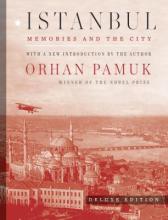
Orhan Pamuk was born in Istanbul and still lives in the family apartment building where his mother first held him in her arms. His portrait of his city is thus also a self-portrait, refracted by memory and the melancholy–or–hüzün–that all Istanbullus share: the sadness that comes of living amid the ruins of a lost empire.

In Truth & Beauty, her frank and startlingly intimate first work of nonfiction, Ann Patchett shines a fresh, revealing light on the world of women's friendships and shows us what it means to stand together. This is a portrait of unwavering commitment that spans twenty years, from the long, cold winters of the Midwest, to surgical wards, to book parties in New York. Through love, fame, drugs, and despair, this book shows us what it means to be part of two lives that are intertwined.

In 1977, Leonard Peltier received a life sentence for the murder of two FBI agents. He has affirmed his innocence ever since--his case was made fully and famously in Peter Matthiessen's bestselling In the Spirit of Crazy Horse--and many remain convinced he was wrongly convicted. Prison Writings is a wise and unsettling book, both memoir and manifesto, chronicling his life in Leavenworth Prison in Kansas.
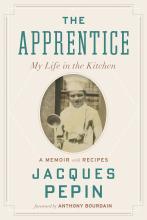
In this captivating memoir, the man whom Julia Child has called "the best chef in America" tells the story of his rise from a frightened apprentice in an exacting Old World kitchen to an Emmy Award winning superstar who taught millions of Americans how to cook and shaped the nation's tastes in the bargain.
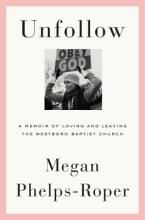
At the age of five, Phelps-Roper began protesting homosexuality and other alleged vices alongside fellow members of the Westboro Baptist Church in Topeka, Kansas. Founded by her grandfather and consisting almost entirely of her extended family, the tiny group would gain worldwide notoriety for its pickets at military funerals and celebrations of death and tragedy. She became the church's Twitter spokeswoman, but dialogue on Twitter caused her to begin doubting the church's leaders and message. Here she relates her moral awakening, her departure from the church, and how she exchanged the absolutes she grew up with for new forms of warmth and community.
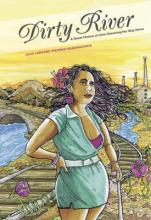
In 1996, poet Leah Lakshmi Piepzna-Samarasinha ran away from America with two backpacks and ended up in Canada, where she discovered queer anarchopunk love and revolution, yet remained haunted by the reasons she left home in the first place. This passionate and riveting memoir is a mixtape of dreams and nightmares, of immigration court lineups and queer South Asian dance nights; it reveals how a disabled queer woman of color and abuse survivor navigates the dirty river of the past and, as the subtitle suggests, "dreams her way home."
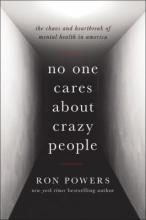
From the centuries of torture of "lunatiks" at Bedlam Asylum to the infamous eugenics era to the follies of the anti-psychiatry movement to the current landscape in which too many families struggle alone to manage afflicted love ones, Powers limns our fears and myths about mental illness and the fractured public policies that have resulted. A blend of history, biography, memoir, and current affairs ending with a consideration of where we might go from here, this is a thought-provoking look at a dreaded illness that has long been misunderstood.
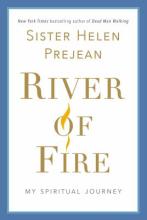
The author of Dead Man Walking, the nation's foremost leader in efforts to abolish the death penalty, shares the story of her growth as a spiritual leader, speaks out about the challenges of the Catholic Church, and shows that joy and religion are not mutually exclusive.

In this irresistible memoir, the #1 "New York Times" bestselling author writes about her life and the lives of women today, looking back and ahead--and celebrating it all--as she considers marriage, girlfriends, our mothers, faith, loss, all that stuff in our closets, and more.
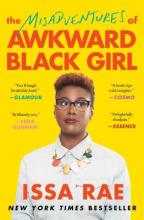
A collection of humorous essays on what it's like to be unabashedly awkward in a world that regards introverts as hapless misfits, and Black as cool. A reflection on her own unique experiences as a cyber pioneer yet universally appealing, The Misadventures of Awkward Black Girl is a book no one—awkward or cool, black, white, or other—will want to miss.
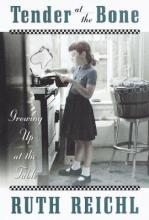
At an early age, Ruth Reichl discovered that "food could be a way of making sense of the world. . . . If you watched people as they ate, you could find out who they were." Her deliciously crafted memoir, Tender at the Bone, is the story of a life determined, enhanced, and defined in equal measure by a passion for food, unforgettable people, and the love of tales well told.

Growing up in Alabama, Renkl was a devoted reader, an explorer of riverbeds and red-dirt roads, and a fiercely loved daughter. Here, in brief essays, she traces a tender and honest portrait of her complicated parents--her exuberant, creative mother; her steady, supportive father--and of the bittersweet moments that accompany a child's transition to caregiver.
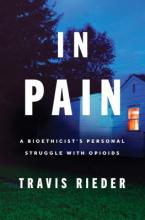
A bioethicist's eloquent and riveting memoir of opioid dependence and withdrawal -- a harrowing personal reckoning and clarion call for change not only for government but medicine itself, revealing the lack of crucial resources and structures to handle this insidious nationwide epidemic. In Pain is not only a gripping personal account of dependence, but a groundbreaking exploration of the intractable causes of America's opioid problem and their implications for resolving the crisis. Rieder makes clear that the opioid crisis exists against a backdrop of real, debilitating pain -- and that anyone can fall victim to this epidemic.
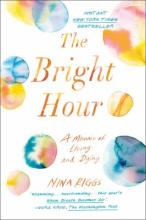
Brilliantly written, disarmingly funny, and deeply moving, The Bright Hour is about how to love all the days, even the bad ones, and it's about the way literature, especially Emerson, and Nina's other muse, Montaigne, can be a balm and a form of prayer. It's a book about looking death squarely in the face and saying "this is what will be." Especially poignant in these uncertain times, The Bright Hour urges us to live well and not lose sight of what makes us human: love, art, music, words.
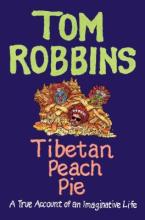
In Tibetan Peach Pie, Robbins turns that unparalleled literary sensibility inward, weaving together stories of his unconventional life–from his Appalachian childhood to his globe-trotting adventures–told in his unique voice, which combines the sweet and sly, the spiritual and earthy. The grandchild of Baptist preachers, Robbins would become, over the course of half a century, a poet interruptus, a soldier, a meteorologist, a radio DJ, an art-critic-turned-psychedelic-journeyman, a world-famous novelist, and a counterculture hero, leading a life as unlikely, magical, and bizarre as those of his quixotic characters.
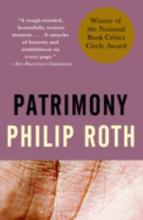
Novelist Philip Roth watches as his self-disciplined, blunt, irascible, unrelenting father, famous for his vigor, his charm, and his repertoire of Newark recollections, does battle with the ignominy and helplessness of old age. The son, full of love, anxiety, and dread, accompanies his father through each fearful stage of his ordeal, disclosing the survivalist tenacity that distinguished his father's long, stubborn engagement with life.
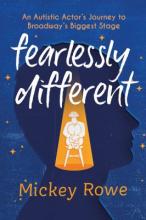
Fearlessly Different is the moving, inspirational memoir of autistic actor Mickey Rowe, who pushed beyond the stereotypes and obstacles so many disabled individuals face to shine on Broadway's biggest stage. Fearlessly Different opens up the world of autism to those who feel locked out and helps those with autism feel seen and understood.
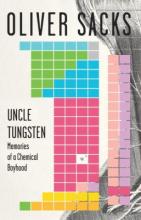
Long before Oliver Sacks became a distinguished neurologist and bestselling writer, he was a small English boy fascinated by metals-also by chemical reactions (the louder and smellier the better), photography, squids and cuttlefish, H.G. Wells, and the periodic table. In this endlessly charming and eloquent memoir, the author chronicles his love affair with science and the magnificently odd and sometimes harrowing childhood in which that love affair unfolded.
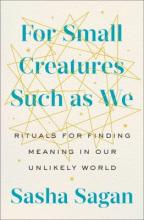
When Sagan herself became a mother, she began her own hunt for the natural phenomena behind our most treasured occasions--from births to deaths, holidays to weddings, anniversaries, and more--growing these roots into a new set of rituals for her young daughter that honor the joy and significance of each experience without relying on religious framework. As Sagan shares these rituals, For Small Creatures Such as We becomes a tribute to a father, a newborn daughter, a marriage, and the natural world--a celebration of life itself, and the power of our families and beliefs to bring us together.

Challenging our understanding of what it means to be human, Joel Salinas, a Harvard-trained researcher and neurologist at Massachusetts General, shares his experiences with mirror-touch synesthesia, a rare and only recently identified neurological trait that causes him to feel the emotional and physical experiences of other people. Performing a spinal tap, he feels the needle slowly enter his lower back. If a disoriented patient flies into a confused rage, Salinas slips into a similarly agitated physical state, and when a patient dies, he experiences an involuntary ruin--his body starts to feel vacant and lifeless, like a limp balloon. Beautifully written with intelligence and compassion and anchored by the latest developments in neurology, psychology and psychiatry, Mirror Touch is an enthralling and wholly original investigation into the unexplored corners of the brain, where the foundation of human experience and relationships take root--everything it means to think, to feel, and to be.
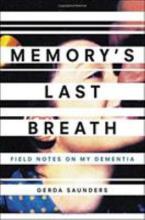
Based on the "field notes" she keeps in her journal, Memory's Last Breath is Saunders' astonishing window into a life distorted by dementia. She writes about shopping trips cut short by unintentional shoplifting, car journeys derailed when she loses her bearings, and the embarrassment of forgetting what she has just said to a room of colleagues. Coping with the complications of losing short-term memory, Saunders nonetheless embarks on a personal investigation of the brain and its mysteries, examining science and literature, and immersing herself in vivid memories of her childhood in South Africa.

In this gripping memoir of the AIDS years (1981–1996), Sarah Schulman recalls how much of the rebellious queer culture, cheap rents, and a vibrant downtown arts movement vanished almost overnight to be replaced by gay conservative spokespeople and mainstream consumerism. Schulman takes us back to her Lower East Side and brings it to life, filling these pages with vivid memories of her avant-garde queer friends and dramatically recreating the early years of the AIDS crisis as experienced by a political insider. Interweaving personal reminiscence with cogent analysis, Schulman details her experience as a witness to the loss of a generation’s imagination and the consequences of that loss.
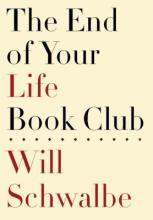
Mary Anne Schwalbe is waiting for her chemotherapy treatments when Will casually asks her what she's reading. The conversation they have grows into tradition: soon they are reading the same books so they can have something to talk about in the hospital waiting room. The ones they choose range from classic to popular, from fantastic to spiritual, and we hear their passion for reading and their love for each other in their intimate and searching discussions. A profoundly moving testament to the power of love between a child and parent, and the power of reading in our lives.

Deeply personal and thoroughly researched, The Man They Wanted Me to Be examines how we teach boys what’s expected of men in America, and the long term effects of that socialization—which include depression, suicide, misogyny, and, ultimately, shorter lives. Sexton turns his keen eye to the establishment of the racist patriarchal structure which has favored white men, and investigates the personal and societal dangers of such outdated definitions of manhood.
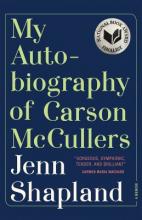
While working as an intern in the archives at the Harry Ransom Center, Jenn Shapland encounters the love letters of Carson McCullers and a woman named Annemarie-letters that are tender, intimate, and unabashed in their feelings. Shapland recognizes herself in the letters' language-but does not see McCullers as history has portrayed her. And so, Shapland is compelled to undertake a recovery of the full narrative and language of McCullers's life: she wades through the therapy transcripts; she stays at McCullers's childhood home, where she lounges in her bathtub and eats delivery pizza; she relives McCullers's days at her beloved Yaddo. The results reveal something entirely new not only about this one remarkable, walleyed life, but about the way we tell queer love stories.
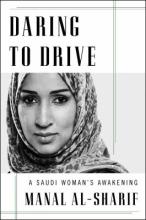
Daring to Drive is the fiercely intimate memoir of an accidental activist, a powerfully vivid story of a young Muslim woman who stood up to a kingdom of men—and won. Writing on the cusp of history, Manal offers a rare glimpse into the lives of women in Saudi Arabia today. Her memoir is a remarkable celebration of resilience in the face of tyranny, the extraordinary power of education and female solidarity, and the difficulties, absurdities, and joys of making your voice heard.
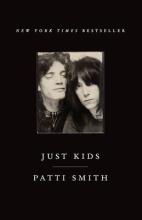
In this tough, tender memoir, singer-songwriter Patti Smith transports readers to what seemed like halcyon days for art and artists in New York as she shares tales of the denizens of Max's Kansas City, the Hotel Chelsea, Scribner's, Brentano's and Strand bookstores and her new life in Brooklyn with a young man named Robert Mapplethorpe--the man who changed her life with his love, friendship, and genius.
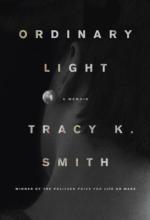
Tracy K. Smith had a fairly typical upbringing in suburban California: the youngest in a family of five children raised with limitless affection and a firm belief in God by a stay-at-home mother and an engineer father. But after spending a summer in Alabama at her grandmother's home, she returns to California with a new sense of what it means for her to be black: from her mother's memories of picking cotton as a girl in her father's field for pennies a bushel, to her parents' involvement in the Civil Rights movement. Written with a poet's precision and economy, this gorgeous, probing kaleidoscope of self and family offers us a universal story of belonging and becoming, and the ways we find and lose ourselves amid the places we call home.
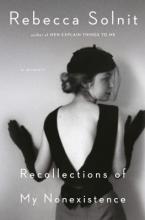
In Recollections of My Nonexistence, Rebecca Solnit describes her formation as a writer and as a feminist in 1980s San Francisco, in an atmosphere of gender violence on the street and throughout society and the exclusion of women from cultural arenas. She tells of being poor, hopeful, and adrift in the city that became her great teacher; of the small apartment that, when she was nineteen, became the home in which she transformed herself; of how punk rock gave form and voice to her own fury and explosive energy.
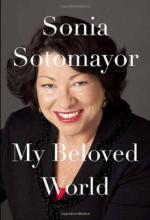
An instant American icon--the first Hispanic on the U.S. Supreme Court--tells the story of her life before becoming a judge in an inspiring, surprisingly personal memoir. With startling candor and intimacy, Sonia Sotomayor recounts her life from a Bronx housing project to the federal bench, a progress that is testament to her extraordinary determination and the power of believing in oneself. Through her still-astonished eyes, America's infinite possibilities are envisioned anew.
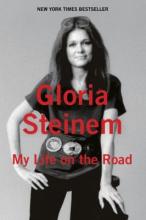
Gloria Steinem—writer, activist, organizer, and one of the most inspiring leaders in the world—now tells a story she has never told before, a candid account of how her early years led her to live an on-the-road kind of life, traveling, listening to people, learning, and creating change. She reveals the story of her own growth in tandem with the growth of an ongoing movement for equality. This is the story at the heart of My Life on the Road.

An unforgettable true story about the potential for mercy to redeem us, and a clarion call to end mass incarceration in America — from one of the most inspiring lawyers of our time. Just Mercy tells the story of EJI, from the early days with a small staff facing the nation’s highest death sentencing and execution rates, through a successful campaign to challenge the cruel practice of sentencing children to die in prison, to revolutionary projects designed to confront Americans with our history of racial injustice.
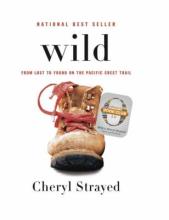
At twenty-two, Cheryl Strayed thought she had lost everything. In the wake of her mother’s death, her family scattered and her own marriage was soon destroyed. Four years later, with nothing more to lose, she made the most impulsive decision of her life. With no experience or training, driven only by blind will, she would hike more than a thousand miles of the Pacific Crest Trail from the Mojave Desert through California and Oregon to Washington State — and she would do it alone. Told with suspense and style, sparkling with warmth and humor, Wild powerfully captures the terrors and pleasures of one young woman forging ahead against all odds on a journey that maddened, strengthened, and ultimately healed her.

In Where the Past Begins, bestselling author Amy Tan is at her most intimate in revealing the truths and inspirations that underlie her extraordinary fiction. By delving into vivid memories of her traumatic childhood, confessions of self-doubt in her journals, and heartbreaking letters to and from her mother, she gives evidence to all that made it both unlikely and inevitable that she would become a writer. Through spontaneous storytelling, she shows how a fluid fictional state of mind unleashed near-forgotten memories that became the emotional nucleus of her novels.
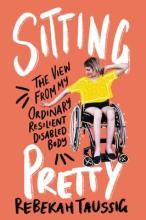
Disability affects all of us, directly or indirectly, at one point or another. By exploring this truth in poignant and lyrical essays, Taussig illustrates the need for more stories and more voices to understand the diversity of humanity. Sitting Pretty challenges us as a society to be patient and vigilant, practical and imaginative, kind and relentless, as we set to work to write an entirely different story.
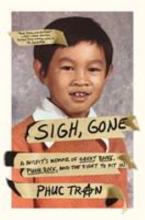
In 1975, during the fall of Saigon, Phuc Tran immigrates to America along with his family. By sheer chance they land in Carlisle, Pennsylvania, a small town where the Trans struggle to assimilate into their new life. In this coming-of-age memoir told through the themes of great books such as The Metamorphosis, The Scarlet Letter, The Iliad, and more, Tran navigates the push and pull of finding and accepting himself despite the challenges of immigration, feelings of isolation, teenage rebellion, and assimilation, all while attempting to meet the rigid expectations set by his immigrant parents.
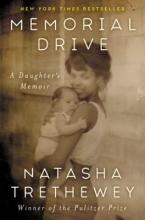
Pulitzer Prize–winning poet Natasha Trethewey explores this profound experience of pain, loss, and grief as an entry point into understanding the tragic course of her mother’s life and the way her own life has been shaped by a legacy of fierce love and resilience. Moving through her mother’s history in the deeply segregated South and through her own girlhood as a “child of miscegenation” in Mississippi, Trethewey plumbs her sense of dislocation and displacement in the lead-up to the harrowing crime that took place on Memorial Drive in Atlanta in 1985.
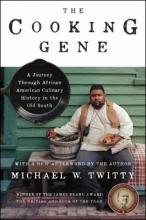
Southern food is integral to the American culinary tradition, yet the question of who "owns" it is one of the most provocative touchpoints in our ongoing struggles over race. In this unique memoir, culinary historian Michael W. Twitty takes listeners to the white-hot center of this fight, tracing the roots of his own family and the charged politics surrounding the origins of soul food, barbecue, and all Southern cuisine.
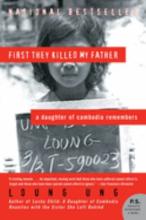
One of seven children of a high-ranking government official, Loung Ung lived a privileged life in the Cambodian capital of Phnom Penh until the age of five. Then, in April 1975, Pol Pot's Khmer Rouge army stormed into the city, forcing Ung's family to flee and, eventually, to disperse. Loung was trained as a child soldier in a work camp for orphans, her siblings were sent to labor camps, and those who survived the horrors would not be reunited until the Khmer Rouge was destroyed. Harrowing yet hopeful, Loung's powerful story is an unforgettable account of a family shaken and shattered, yet miraculously sustained by courage and love in the face of unspeakable brutality.

Documents the biologist adventurer's treks in the vast wilderness region spanning the Pacific rainforest through the Alaskan Arctic, where she and her husband tested their physical boundaries while making profound natural-world connections.
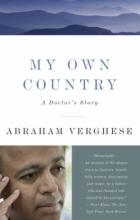
Working in Johnson City was Abraham Verghese, a young Indian doctor specializing in infectious diseases. Dr. Verghese became by necessity the local AIDS expert, soon besieged by a shocking number of male and female patients whose stories came to occupy his mind, and even take over his life. Verghese brought a singular perspective to Johnson City: as a doctor unique in his abilities; as an outsider who could talk to people suspicious of local practitioners; above all, as a writer of grace and compassion who saw that what was happening in this conservative community was both a medical and a spiritual emergency.
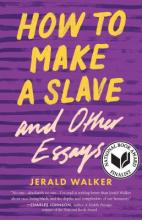
Personal essays exploring identity, family, and community through the prism of race and black culture. Confronts the medical profession's racial biases, shopping while black at Whole Foods, the legacy of Michael Jackson, raising black boys, haircuts that scare white people, racial profiling, and growing up in Southside Chicago.
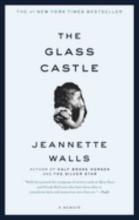
Journalist Walls grew up with parents whose ideals and stubborn nonconformity were their curse and their salvation. Rex and Rose Mary and their four children lived like nomads, moving among Southwest desert towns, camping in the mountains. Rex was a charismatic, brilliant man who, when sober, captured his children's imagination, teaching them how to embrace life fearlessly. Rose Mary painted and wrote and couldn't stand the responsibility of providing for her family. When the money ran out, the Walls retreated to the dismal West Virginia mining town Rex had tried to escape.
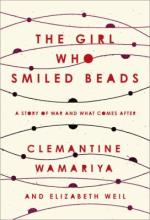
Clemantine Wamariya was six years old when her mother and father began to speak in whispers, when neighbors began to disappear, and when she heard the loud, ugly sounds her brother said were thunder. It was 1994, and in 100 days more than 800,000 people would be murdered in Rwanda and millions more displaced. Raw, urgent, yet disarmingly beautiful, this book captures the true costs and aftershocks of war: what is forever lost, what can be repaired, the fragility and importance of memory.
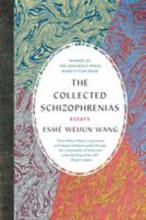
Schizophrenia is not a single unifying diagnosis, and Esmé Weijun Wang writes not just to her fellow members of the 'collected schizophrenias' but to those who wish to understand it as well. Opening with the journey toward her diagnosis of schizoaffective disorder, Wang discusses the medical community's own disagreement about labels and procedures for diagnosing those with mental illness, and then follows an arc that examines the manifestations of schizophrenia in her life.
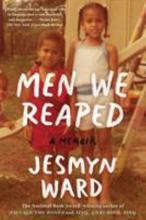
Jesmyn grew up in poverty in rural Mississippi. She writes powerfully about the pressures this brings, on the men who can do no right and the women who stand in for family in a society where the men are often absent. She bravely tells her story, revisiting the agonizing losses of her only brother and her friends. As the sole member of her family to leave home and pursue higher education, she writes about this parallel American universe with the objectivity distance provides and the intimacy of utter familiarity. A brutal world rendered beautifully.
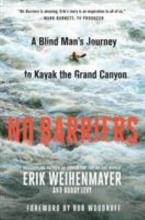
Like the rapids of the Grand Canyon, created by inexorable forces far beneath the surface, No Barriers is a dive into the heart and mind at the core of the turbulent human experience. It is an exploration of the light that burns in all of us, the obstacles that threaten to extinguish that light, and the treacherous ascent towards growth and rebirth.
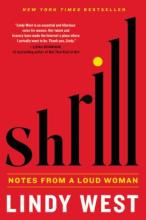
With inimitable good humor, vulnerability, and boundless charm, Lindy boldly shares how to survive in a world where not all stories are created equal and not all bodies are treated with equal respect, and how to weather hatred, loneliness, harassment, and loss--and walk away laughing. Shrill provocatively dissects what it means to become self-aware the hard way, to go from wanting to be silent and invisible to earning a living defending the silenced in all caps.
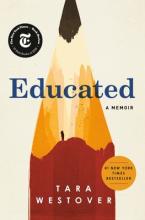
Tara Westover was 17 the first time she set foot in a classroom. Born to survivalists in the mountains of Idaho, she prepared for the end of the world by stockpiling home-canned peaches and sleeping with her "head-for-the-hills bag". In the summer she stewed herbs for her mother, a midwife and healer, and in the winter she salvaged in her father's junkyard. Educated is an account of the struggle for self-invention. It is a tale of fierce family loyalty and of the grief that comes with severing the closest of ties. With the acute insight that distinguishes all great writers, Westover has crafted a universal coming-of-age story that gets to the heart of what an education is and what it offers: the perspective to see one's life through new eyes and the will to change it.
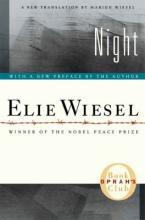
Born in the town of Sighet, Transylvania, Elie Wiesel was a teenager when he and his family were taken from their home in 1944 to the Auschwitz concentration camp, and then to Buchenwald. This book is the terrifying record of Elie Wiesel's memories of the death of his family, the death of his own innocence, and his despair as a deeply observant Jew confronting the absolute evil of man.

From the Grand Tetons in Wyoming to Acadia in Maine to Big Bend in Texas and more, Williams creates a series of lyrical portraits that illuminate the unique grandeur of each place while delving into what it means to shape a landscape with its own evolutionary history into something of our own making. Part memoir, part natural history, and part social critique, The Hour of Land is a meditation and a manifesto on why wild lands matter to the soul of America.
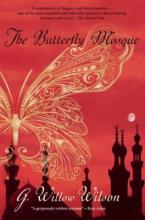
The extraordinary story of an all-American girl’s conversion to Islam and her ensuing romance with a young Egyptian man, The Butterfly Mosque is a stunning articulation of a Westerner embracing the Muslim world.
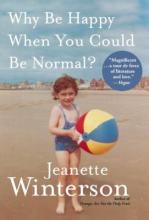
Why Be Happy When You Could Be Normal? is a memoir about a life's work to find happiness. It's a book full of stories: about a girl locked out of her home, sitting on the doorstep all night; about a religious zealot disguised as a mother who has two sets of false teeth and a revolver in the dresser, waiting for Armageddon; about growing up in an north England industrial town now changed beyond recognition; about the Universe as Cosmic Dustbin. It is the story of how a painful past that Jeanette thought she'd written over and repainted rose to haunt her, sending her on a journey into madness and out again, in search of her biological mother.
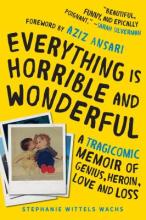
When Wittels Wachs's younger brother Harris died of a heroin overdose, she didn't know how to make sense of such a tragic end to a life of so much hilarious brilliance. Here she alternates between her brother's struggle with addiction, and the first year after his death. Even in all its emotional devastation, this exploration of the love between siblings will make you laugh, cry... and wonder if that possum on the fence is really your brother's spirit animal.
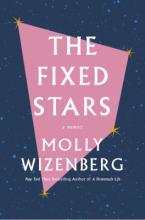
Like many of us, Wizenberg had long understood sexual orientation as a stable part of ourselves: we're 'born this way.' Suddenly she realized that her story was more complicated. Who was she, she wondered, if something at her very core could change so radically? The Fixed Stars is a taut, electrifying memoir exploring timely and timeless questions about desire, identity, and the limits and possibilities of family. In honest and searing prose, Wizenberg forges a new path: through the murk of separation and divorce, coming out to family and friends, learning to co-parent a young child, and realizing a new vision of love. The result is a frank and moving story about letting go of rigid definitions and ideals that no longer fit, and learning instead who we really are.

In Close to the Knives, David Wojnarowicz gives us an important and timely document: a collection of creative essays - a scathing, sexy, sublimely humorous and honest personal testimony to the "Fear of Diversity in America." From the author's violent childhood in suburbia to eventual homelessness on the streets and piers of New York City, to recognition as one of the most provocative artists of his generation -- Close to the Knives is his powerful and iconoclastic memoir. Street life, drugs, art and nature, family, AIDS, politics, friendship and acceptance: Wojnarowicz challenges us to examine our lives -- politically, socially, emotionally, and aesthetically.
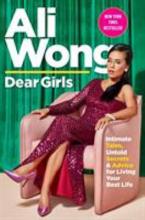
The sharp insights and humor are even more personal in this completely original collection. She shares the wisdom she's learned from a life in comedy and reveals stories from her life off stage, including the brutal singles life in New York (i.e. the inevitable confrontation with erectile dysfunction), reconnecting with her roots (and drinking snake blood) in Vietnam, tales of being a wild child growing up in San Francisco, and parenting war stories. Though addressed to her daughters, Ali Wong's letters are absurdly funny, surprisingly moving, and enlightening (and disgusting) for all.
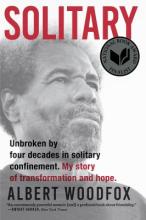
Solitary is the unforgettable life story of a man who served more than four decades in solitary confinement—in a 6-foot by 9-foot cell, 23 hours a day, in notorious Angola prison in Louisiana—all for a crime he did not commit. That Albert Woodfox survived was, in itself, a feat of extraordinary endurance against the violence and deprivation he faced daily. That he was able to emerge whole from his odyssey within America’s prison and judicial systems is a triumph of the human spirit, and makes his book a clarion call to reform the inhumanity of solitary confinement in the U.S. and around the world.

Elizabeth Wurtzel writes with her finger on the faint pulse of an overdiagnosed generation whose ruling icons are Kurt Cobain, Xanax, and pierced tongues. Her famous memoir of her bouts with depression and skirmishes with drugs, Prozac Nation is a witty and sharp account of the psychopharmacology of an era for readers of Girl, Interrupted and Sylvia Plath’s The Bell Jar.
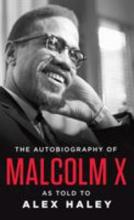
Through a life of passion and struggle, Malcolm X became one of the most influential figures of the 20th Century. In this riveting account, he tells of his journey from a prison cell to Mecca, describing his transition from hoodlum to Muslim minister. Here, the man who called himself "the angriest Black man in America" relates how his conversion to true Islam helped him confront his rage and recognize the brotherhood of all mankind.
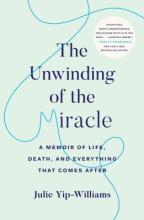
The Unwinding of the Miracle is the story of a vigorous life refracted through the prism of imminent death. When she was first diagnosed, Julie Yip-Williams sought clarity and guidance through the experience and, finding none, began to write her way through it--a chronicle that grew beyond her imagining. Motherhood, marriage, the immigrant experience, ambition, love, wanderlust, tennis, fortune-tellers, grief, reincarnation, jealousy, comfort, pain, the marvel of the body in full rebellion--this book is as sprawling and majestic as the life it records. It is inspiring and instructive, delightful and shattering. It is a book of indelible moments, seared deep--an incomparable guide to living vividly by facing hard truths consciously.

When the Taliban took control of the Swat Valley, one girl spoke out. Malala Yousafzai refused to be silenced and fought for her right to an education. On Tuesday October 9, 2012, she almost paid the ultimate price.
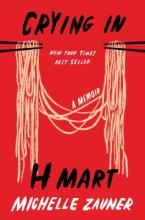
In this exquisite story of family, food, grief, and endurance, Michelle Zauner proves herself far more than a dazzling singer, songwriter, and guitarist. With humor and heart, she tells of growing up one of the few Asian American kids at her school in Eugene, Oregon; of struggling with her mother’s particular, high expectations of her; of a painful adolescence; of treasured months spent in her grandmother’s tiny apartment in Seoul, where she and her mother would bond, late at night, over heaping plates of food. Vivacious and plainspoken, lyrical and honest, Zauner’s voice is as radiantly alive on the page as it is onstage. Rich with intimate anecdotes that will resonate widely, and complete with family photos, Crying in H Mart is a book to cherish, share, and reread.